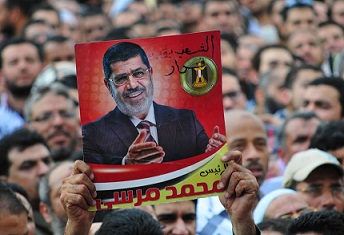My last article quoted a statement made by the English writer Arthur Clarke that goes as follows: “new ideas pass through three periods: 1) It can’t be done. 2) It probably can be done, but it’s not worth doing. 3) I knew it was a good idea all along.
By arguing that initial reactions to new ideas are not necessarily the final ones, Clarke wanted to suggest caution and restraint in the face of different ideas that might seem odd or unpalatable at first glance.
I used Clarke’s words at the end of an article that explained that Egypt is a “shame culture, in which one’s reputation in the eyes of the community is extremely relevant and important. Taking advantage of that deep-rooted societal trait, I suggested stamping sexual harassers on their face with an ink that leaves no permanent marks, but is sufficient to defame them for days or weeks.
Unfortunately, Egypt is not the best incubator of new ideas; they are usually met with a great deal of rejection and scorn.
Different ideas and opinions open vast opportunities for thought and reflection. That is why students at school and university learn that brainstorming is an open process to all ideas and perspectives; criticism at this stage is not accepted. The objective of brainstorming is to train minds to break the realm of conventional thinking and pursue the untouched openly and freely.
It is interesting within this context to notice that the Guidelines section of the prestigious Foreign Affairs magazine mentions that the Comments section of the magazine must include pieces that “make a single, provocative point.
No wonder thus that Foreign Affairs hosted a few years ago an article entitled “Give War a Chance. The article’s heading reveals its core message. In a nutshell, it argues in favor of not interfering with military conflicts, not on the basis of indifference to human suffering, the author argues, but on the premise – dubious to many – that the continuation of war will assist the advent of peace. In other words, the author is against peacekeeping operations and prefers if one of the belligerents completely prevails over his opponent for a lasting peace to materialize, even if such an outcome is inevitably attained at a high human and material cost. Such a provocative and shocking idea was approved by the editors of the bi-monthly magazine that is considered to be America’s most influential publication on international politics.
It is hard to imagine an Egyptian publication using the adjective “provocative in description of the material it seeks publishing. In fact, if Egyptian publications make a list of the type of material they habitually reject, it would include, first and foremost, provocative, unorthodox ideas. Self-censorship is, mostly, more strict than state censorship. Exceptions do exist, the type that consolidate the rule, not refute it.
That posture could be explained by the fact that Egyptian intellectuals seem to be, on the whole, hostage to their audience. In many cases, they express what they inherently believe must be said rather than reveal what they truly think. Displeasing people but honoring the truth (whatever this may mean of course) is preferred to pleasing people but not serving the truth.
In other words, intellectuals followed in the footsteps of the Egyptian society which has developed a harsh antipathy towards different approaches to life. Stagnation in politics – a feature of Mubarak’s Egypt – has infiltrated society and culture as well. Innovation and experimentalism are perceived with a mixture of mistrust and hostility. Staying on the ‘safe side’ – by sticking to current mindsets, ways of life and approaches to problems – has become the norm.
That inertness could be attributed to the wave of conservatism that invaded all facets of life in the past few decades. Conservatism – the psychological force that favors the status quo – is more often than not opposed to change and afraid of its consequences.
Ironically, that negative posture towards change takes place in a country that desperately needs change on all fronts. In modern times, Egypt has always remained a developing country. It has been plagued by myriad economic, political and social malaises for decades, if not centuries. To address these problems, change – perhaps, even, fundamental change – is imperative. And the magnitude of the present challenges often requires creative, unconventional ways of thinking.
Political culture is a fascinating field of research. In the case of Egypt, one central question to be investigated is: to what extent has the prevailing culture promoted or inhibited progress?
Nael M. Shama, PhD, is a political researcher and freelance writer based in Cairo. He could be reached at: [email protected]

